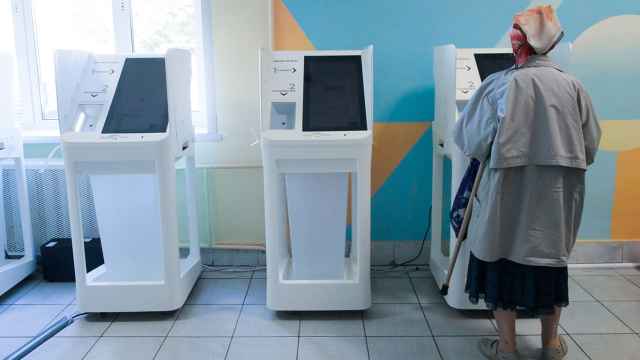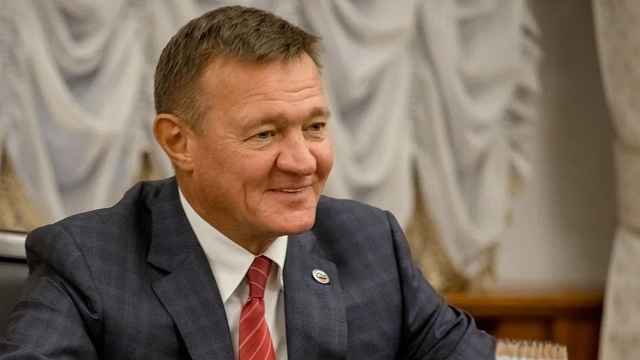First and most important is that the Kremlin is getting ready to loosen its hold on political power and civil society. In effect it has conceded that people are tired and want more say over how the country is run.
The Kremlin is also preparing to cede more power to genuine opposition groups. This strongly suggests that in future elections the Kremlin will be satisfied with a simple majority.
But not in Duma elections in December. The new bill won't come into effect until the next parliamentary elections. This means that the Kremlin — i.e. Putin — intends to go for a constitutional majority this time. But we knew that already, thanks to the prime minister's attempts to set up new parties to revitalize the party of power's appeal to the electorate as it becomes increasingly obvious that United Russia is bankrupt as a political force.
This bill also strongly suggests that Medvedev will stay on as president.
The decision to pass this bill vindicates bne's argument that Putin intends to introduce more political freedom and gradually ease Russia towards something more like parliamentary democracy.
Both Putin and Medvedev have said explicitly that they want to avoid the mistake Gorbachev made; he introduced the political freedoms first and then tried to push through the economic reforms, leading to the collapse of the system. Putin wants to do the economic reforms first. Only once he has build a stable and prosperous society will he introduce the political freedoms.
This is one of the reasons he is pushing for increased home ownership so hard; people who own property don't make good rebels. Yesterday he called on Sberbank to reduce interest rates to 8 percent. This is linked to the same goal as the first piece of news.
The news that Medvedev has ordered the bar on entry to parliament lowered is a major signal of the tandem's future plans for politics in Russia, but this event has passed off with almost no comment. Easing control over politics (albeit in a very limited fashion) doesn't fit with the authoritarian stereotype that Putin has been branded with.
Political freedoms are coming and there is an increasing amount of noise that suggests that as soon as the presidential elections in March are passed, we will see several new big reforms designed to pick up the pace of change significantly.
But all said and done, what is so disappointing about this news is that it will only apply to the 2015 elections. That means the opposition will be left in the wildness for another four years.
It's a mistake at a time when the population is becoming increasingly disillusioned. The middle-aged are already drawing parallels with the Brezhnev-era, the middle class are frustrated with their political impotence, and the young are leaving, complaining that the state's tight control of the system has destroyed social mobility. It is extremely difficult for anyone of modest origins to join the ranks of the privileged elite.
Putin is betting that if he can repeat his trick of producing fast growth and material gain — incomes increased 14-fold while he was president — then this will be enough to satisfy voters. But as people become wealthier they also become increasingly political, or at least demand more say in the political process. If they don't get it, they will eventually rebel. Russia is already prosperous. The time to ease control over the political system is now.
A Message from The Moscow Times:
Dear readers,
We are facing unprecedented challenges. Russia's Prosecutor General's Office has designated The Moscow Times as an "undesirable" organization, criminalizing our work and putting our staff at risk of prosecution. This follows our earlier unjust labeling as a "foreign agent."
These actions are direct attempts to silence independent journalism in Russia. The authorities claim our work "discredits the decisions of the Russian leadership." We see things differently: we strive to provide accurate, unbiased reporting on Russia.
We, the journalists of The Moscow Times, refuse to be silenced. But to continue our work, we need your help.
Your support, no matter how small, makes a world of difference. If you can, please support us monthly starting from just $2. It's quick to set up, and every contribution makes a significant impact.
By supporting The Moscow Times, you're defending open, independent journalism in the face of repression. Thank you for standing with us.
Remind me later.





